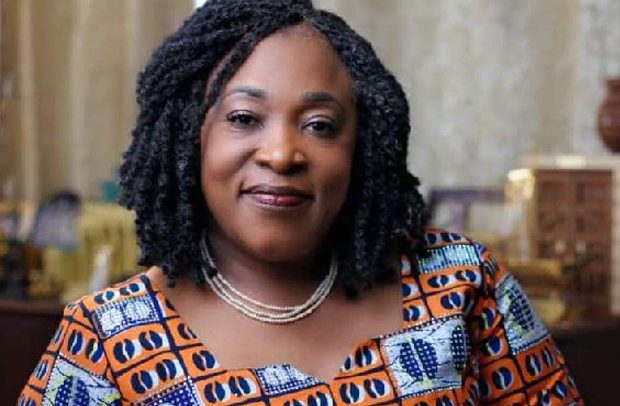Shirley Ayorkor Botchwey
The Ministry of Foreign Affairs and Regional Integration and the Economic Community of West African States (ECOWAS) have commenced a two-day sensitization and support programme for citizens in West Africa on ECOWAS national biometric card.
It seeks to among other things raise awarenesses among citizens in the subregion on various regional instruments on free movement on migration.
Foreign Minister, Shirley Ayorkor Botchwey, speaking at the opening ceremony, said despite existing protocols on travels in the region, the ECOWAS region continued to face challenges which delay the actualization of free movement as envisaged by its founders.
These challenges, she said, include lack of knowledge of the rights and responsibilities enshrined in the ECOWAS Free Movement Protocol and related texts,
irregular migration, transnational crime, such as human trafficking, vulnerability of ECOWAS Community Citizens, migrants and travelers within the ECOWAS region.
According to her, lack of valid travel documents and identification cards for community citizens, migrants and travelers, high level of harassment and extortion of money at the border posts and vulnerability of cross-border traders and marketers.
She noted that “after over six decades of independence of ECOWAS member states, this should not be our story. We ought to chart a path towards real regional integration which should lead to the development, prosperity and wellbeing of our people.”
The International Organization for Migration (IOM) has meanwhile stressed the need to protect migrants traveling across the ECOWAS subregion.
IOM Ghana Chief of Mission, Sylvia Lopez- Ekra, made the statement in Accra at a separate two-day advocacy, sensitization and support programme on the implementation of the ECOWAS national biometric card.
The IOM Chief of Mission thanked the Government of Ghana and ECOWAS for holding the town hall meeting.
Touching on the migration situation around the world, she said “we live in an era of unprecedented human mobility.”
Today, she revealed, one in every seven person is a migrant.
She therefore observed the need for migrants protection.
In Africa, she said, young people risk their lives through the Mediterranean to travel to Europe.
Young women, according to her, are deceived by some travel agencies in their quests to get domestic jobs overseas.
“Stories of abuse are abound in our newspapers and on our television,” she said.
The need to protect all migrants traveling through ECOWAS region is crucial, she stated.
ECOWAS officials, civil society and the media, according to her, have a role to play in raising public awareness on free movement in the region.
She stated that migration has always been and will always be; it is here to stay and will always be part of the world we live”
Migration is necessary for socioeconomic development and growth, she noted, adding that migration is desirable when it is well governed.
BY Melvin Tarlue & Donny Morrison

